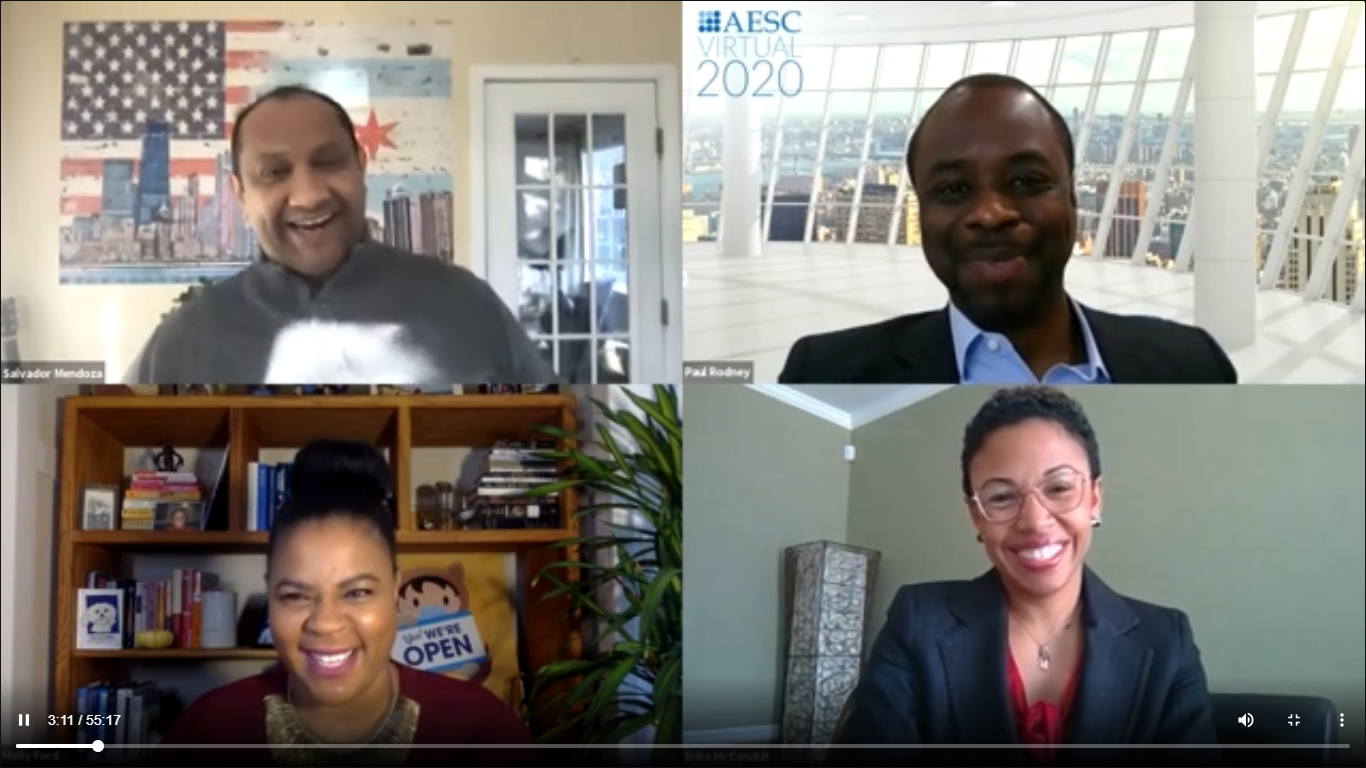
4 Takeaways from AESC’s Chief Diversity Officer Panel Discussion
Raines International’s Head of Diversity, Equity, and Inclusion Pauly Rodney moderated a fantastic DEI discussion in late November called “Learning from Those Who Lead the Way.” The panel, part of the AESC’s Annual Global Conference, was held virtually this year.
From looking at the DEI function through the lens of pre- and post-George Floyd, to advocating for data tracking to strengthen DEI, panelists gave examples from their research, professional experiences, and backgrounds to help participants hold organizations accountable and empower employees. The panelists were Molly Q. Ford, Vice President of Global Equality Programs at Salesforce, Erika McConduit, Vice President of Diversity and Inclusion at Centene Corporation, Salvador Mendoza, Vice President of Diversity and Inclusion at NBCUniversal Media, LLC.
Some key takeaways from the hour long discussion:
- Everyone is part of DEI work: Both Ford and McConduit emphasized the importance of incorporating allies and everyone at the organization. DEI is not only the responsibility of those with that in their job description. Without the entire company from the top down and bottom up invested in DEI, the culture of an organization won’t shift. Likewise, Mendoza – who flagged the ability of NBC Universal as an entertainment and news company to reflect society, share new storylines, and cover communities sensitively and fairly – highlighted how internal decisions have ripple effects externally. As an example, NBC News’ decision as the first news network to replace the phrase “illegal aliens” with “undocumented immigrants” led to all but one other news network to do the same. Further, panelists advised DEI leaders to meet employees where they are in their DEI journey. Not everyone at a company may understand why DEI matters or what is or isn’t insensitive. The DEI team needs to be able to present a variety of arguments — from the emotional to the business side — to reach the most number of employees.
- Data is king. Whether you are tracking diverse candidates at every stage in the hiring process, analyzing attrition and promotions, looking at onboarding and succession planning, or deciding on equity metrics, creating and utilizing a robust data dashboard can make a tremendous difference. Important to remember: DEI efforts shouldn’t only focus on gender and race, but include a variety of other inputs affecting family life, including benefits to support parents and LGTBQ+ families.
- It’s never too late to start; your organization isn’t too small: No matter the size, industry, or age of an organization, it’s never too late to implement or expand a DEI program. All panelists remarked that the smaller an organization, the easier it is to effect real change and have its impact as a core thread grow in the organization. On the opposite end of the scale, changing the culture of a larger or legacy organization may be incremental, and one may have more work to do, but the organization likely has more resources to put behind DEI efforts.
- What’s next? During the COVID-19 pandemic, all organizations have been tested and forced to adapt. Similarly, DEI efforts and programs have been pushed to consider new ways to help employees. For example, organizations may need to offer additional paid time off to allow employees to provide elder or child care, or emphasize health equity given the disproportionate effect of COVID-19 on underrepresented communities. Moving forward, one area in development is how to advance DEI globally and how to keep programming in step with international governmental regulations. DEI work never ends.
To discuss Diversity, Equity, and Inclusion — or how to better promote these ideas in your organization, reach out to us to discuss.